Home>Garden Essentials>Garden Plants>What Is Thyme Oil Used For
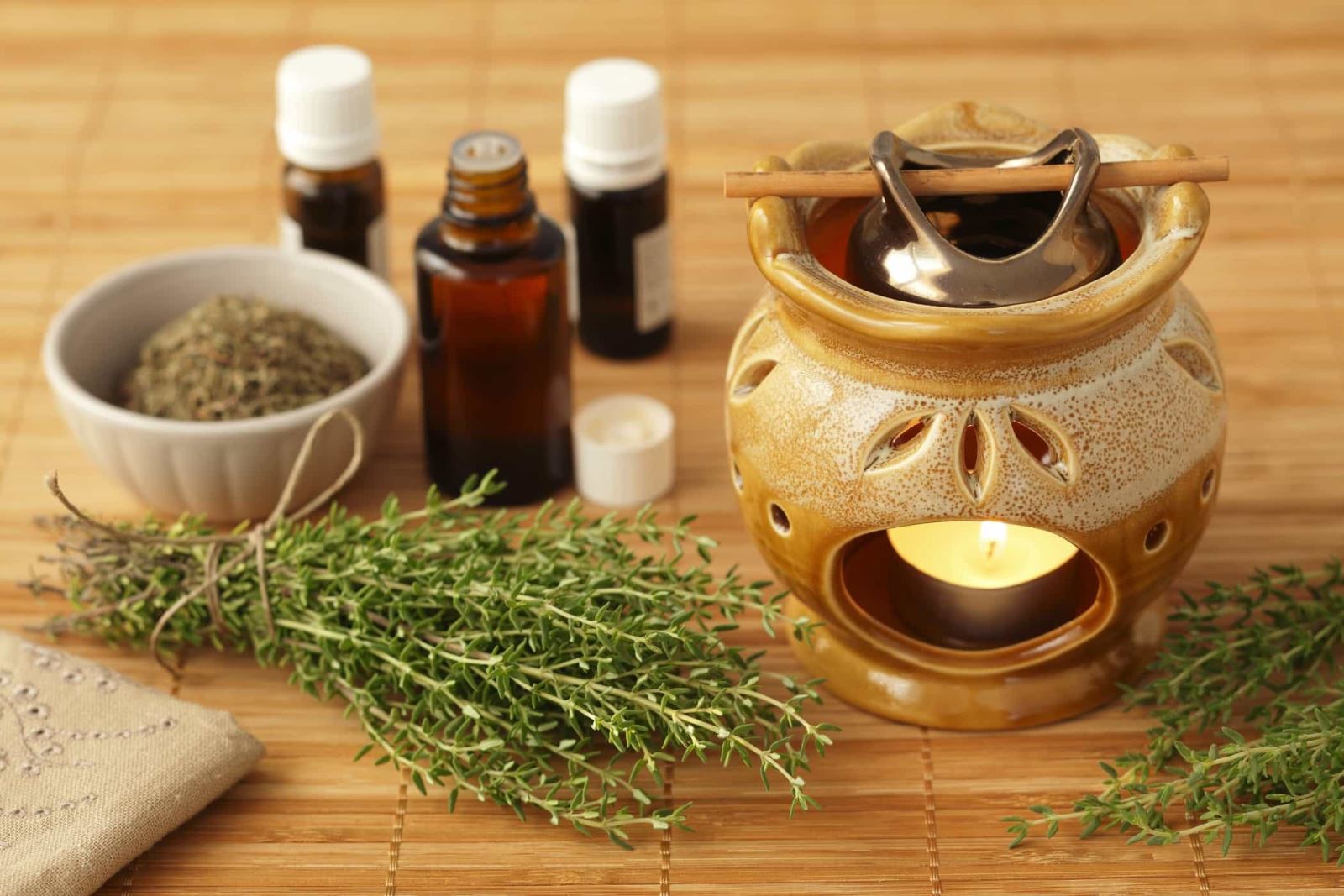

Garden Plants
What Is Thyme Oil Used For
Modified: January 19, 2024
Discover the many uses of thyme oil for plants, including its benefits for gardening, pest control, and natural remedies. Learn how to harness the power of this essential oil.
(Many of the links in this article redirect to a specific reviewed product. Your purchase of these products through affiliate links helps to generate commission for Storables.com, at no extra cost. Learn more)
Introduction
Thyme oil, derived from the evergreen herb thyme (Thymus vulgaris), has been used for centuries for its medicinal and aromatic properties. This versatile essential oil is well-known for its distinct herbal scent and remarkable health benefits. From supporting respiratory health to promoting skin rejuvenation, thyme oil has a wide range of uses.
In addition to its health benefits, thyme oil is also a popular ingredient in beauty and skincare products. Its natural antiseptic and antibacterial properties make it an effective solution for various skin issues. Moreover, thyme oil can be used around the house as a natural cleaner and insect repellent.
In this article, we will explore the numerous benefits of thyme oil and its various applications. Whether you are looking to improve your well-being, enhance your beauty routine, or create a healthier home, thyme oil may just be the solution you’ve been looking for.
Key Takeaways:
- Thyme oil offers a wide range of benefits, from supporting respiratory health to promoting skin rejuvenation, making it a valuable addition to wellness, beauty, and household routines.
- When using thyme oil, it’s crucial to dilute it properly and be aware of potential side effects. Consult a professional before incorporating it into your health, beauty, or cleaning regimen.
Read more: What Is White Thyme Oil Used For
Benefits of Thyme Oil
Thyme oil offers a range of impressive benefits due to its rich composition of nutrients and bioactive compounds. Here are some of the key benefits:
- Antimicrobial Properties: Thyme oil has strong antimicrobial properties, making it effective against various bacteria, viruses, and fungi. It can help protect against infections and support the immune system.
- Respiratory Support: Thyme oil is known for its ability to promote healthy respiratory function. It can help alleviate symptoms of respiratory conditions like coughs, colds, and congestion. Its expectorant properties can help loosen mucus and phlegm, making it easier to cough up.
- Antioxidant Activity: Thyme oil contains antioxidants that can help fight oxidative stress and free radicals in the body. This can contribute to overall health and well-being and may have anti-aging benefits.
- Pain Relief: Thyme oil has analgesic properties, which means it can help reduce pain and discomfort. It may be beneficial for muscle aches, joint pain, headaches, and menstrual cramps when applied topically or used in aromatherapy.
- Digestive Support: Thyme oil can support healthy digestion by stimulating the production of digestive juices and promoting better nutrient absorption. It may also help relieve digestive issues like indigestion, bloating, and gas.
- Anti-inflammatory Effects: Thyme oil has anti-inflammatory properties that can help reduce inflammation in the body. This can be beneficial for conditions such as arthritis, skin irritations, and inflammatory bowel diseases.
- Stress and Anxiety Relief: The aroma of thyme oil has a calming effect on the mind and can help reduce stress, anxiety, and nervous tension. It may also promote relaxation and improve sleep quality.
These are just a few of the many benefits that thyme oil has to offer. Its natural properties make it a valuable addition to your wellness routine.
Health Uses of Thyme Oil
Thyme oil has been used for centuries in traditional medicine for its various health benefits. Here are some of the common health uses of thyme oil:
- Immune Support: Thyme oil is known for its immune-boosting properties. It can help strengthen the immune system, making it more effective in fighting off infections and diseases.
- Respiratory Health: Thyme oil can be used to support respiratory health in several ways. It can help relieve coughs, colds, and congestion by clearing the airways and promoting easier breathing. It may also be beneficial for bronchitis, asthma, and sinusitis.
- Oral Care: Thyme oil has antimicrobial properties that make it a great addition to oral care routines. It can help prevent bad breath, plaque buildup, and gum disease. Additionally, it may provide relief from toothaches and mouth ulcers.
- Digestive Aid: Thyme oil promotes healthy digestion by stimulating the production of digestive enzymes. It can help relieve indigestion, bloating, and gas. Some people also use thyme oil to support liver and gallbladder health.
- Skin Health: Thyme oil is beneficial for various skin conditions due to its antiseptic and anti-inflammatory properties. It can help treat acne, eczema, psoriasis, and wounds. Additionally, it promotes collagen production, which can help reduce the appearance of scars and wrinkles.
- Pain Relief: Thyme oil has analgesic properties that can help relieve pain and inflammation. It can be used topically to alleviate muscle aches, joint pain, and headaches.
It’s important to note that thyme oil should always be diluted before applying it to the skin or ingesting it. It is highly concentrated and can cause irritation if used undiluted.
While thyme oil can offer several health benefits, it’s essential to consult with a healthcare professional before using it, especially if you have any underlying health conditions or are taking medications.
Beauty and Skincare Uses of Thyme Oil
Thyme oil is not only beneficial for health but also holds numerous advantages for beauty and skincare. Here are some of the common beauty and skincare uses of thyme oil:
- Acne Treatment: Thyme oil is renowned for its antibacterial and anti-inflammatory properties, which make it effective in treating acne. It can help control oil production, reduce redness and swelling, and prevent bacterial growth on the skin.
- Anti-Aging Effects: Thyme oil is rich in antioxidants, which can help protect the skin from free radical damage and delay the signs of aging. It can help reduce the appearance of wrinkles, fine lines, and age spots.
- Skin Rejuvenation: Thyme oil can stimulate blood circulation and promote cell regeneration, resulting in a more youthful and radiant complexion. It can also help improve the texture and tone of the skin.
- Scar Reduction: Thyme oil’s properties make it useful in reducing the appearance of scars and stretch marks. It can help fade scars by promoting skin healing and regeneration.
- Hair and Scalp Health: Thyme oil can be beneficial for maintaining a healthy scalp and promoting hair growth. It can help eliminate dandruff, treat scalp infections, and stimulate hair follicles.
- Natural Deodorant: Thyme oil has natural antimicrobial properties that can help combat body odor. It can be used as an ingredient in homemade deodorants or added to bathwater for a refreshing and odor-fighting soak.
When using thyme oil for beauty and skincare purposes, it’s important to remember to dilute it properly. Mix a few drops of thyme oil with a carrier oil, such as coconut oil or jojoba oil, before applying it to the skin.
It’s essential to perform a patch test before using thyme oil on a larger area of the skin, as some individuals may be sensitive or allergic to it.
As with any essential oil, it’s advisable to consult a dermatologist or skincare professional before incorporating thyme oil into your beauty routine, especially if you have any existing skin conditions or are undergoing specific treatments.
Thyme oil is commonly used for its antiseptic and antibacterial properties. It can be used topically to help treat acne, wounds, and insect bites. Always dilute with a carrier oil before applying to the skin.
Household Uses of Thyme Oil
Thyme oil is not only beneficial for health and beauty but also has several household uses. Here are some of the common household uses of thyme oil:
- Natural Cleaner: Thyme oil possesses antimicrobial properties, making it an excellent natural cleaner for your home. You can create a DIY all-purpose cleaner by mixing thyme oil with water and vinegar. It can be used to clean countertops, floors, and even toilet bowls.
- Air Freshener: Thyme oil’s fresh and herbal scent makes it a great ingredient for homemade air fresheners. Dilute a few drops of thyme oil in water and spray it around the house to eliminate odors and create a pleasant atmosphere.
- Insect Repellent: Thyme oil can be used as a natural insect repellent. It contains compounds that repel mosquitoes, ticks, and other insects. You can make a DIY insect repellent spray by combining thyme oil with a carrier oil and spraying it on your skin or around the house.
- Mold and Mildew Prevention: Thyme oil’s antimicrobial properties also make it effective in preventing and eliminating mold and mildew. Add a few drops of thyme oil to water and use it to clean areas prone to mold and mildew growth, such as bathrooms and basements.
- Laundry Freshener: Add a few drops of thyme oil to the rinse cycle of your laundry to enjoy the refreshing scent and enhance the cleanliness of your clothes and linens.
- Pest Control: Thyme oil can help repel pests like ants, moths, and roaches. Simply place a few drops of thyme oil on cotton balls and strategically place them in areas where pests are commonly found.
When using thyme oil for household purposes, always follow proper dilution guidelines and test surfaces before applying to prevent any damage or reactions. Additionally, keep thyme oil out of reach of children and pets.
Thyme oil offers a natural and eco-friendly alternative to conventional household cleaners and pest control methods. It not only helps maintain a clean and fresh home but also avoids exposure to harmful chemicals.
Read more: What Is Red Thyme Essential Oil Used For
How to Use Thyme Oil
Thyme oil can be used in various ways depending on its intended purpose. Here are some common methods for using thyme oil:
- Aromatherapy: Add a few drops of thyme oil to a diffuser or inhaler and breathe in the aromatic vapor to experience its therapeutic benefits. This method can help reduce stress, uplift mood, and promote relaxation.
- Topical Application: Thyme oil can be applied topically to the skin, but it should always be diluted with a carrier oil to avoid irritation. Mix a few drops of thyme oil with a carrier oil, such as coconut oil or jojoba oil, and apply it to the desired area. This method is commonly used for skincare, pain relief, and massage.
- Compresses: Create a hot or cold compress by adding a few drops of thyme oil to a bowl of warm or cold water. Soak a cloth in the solution, wring out excess liquid, and apply it to the affected area. This method is helpful for relieving muscle aches, joint pain, and skin irritations.
- Ingestion: Thyme oil can be taken internally, but it’s important to consult a healthcare professional before doing so. It should only be used in small, controlled doses and under the guidance of a qualified practitioner. It can be added to culinary recipes, herbal teas, or diluted in water for a refreshing and therapeutic drink.
- Household and Cleaning: Dilute thyme oil with water or vinegar to create a natural cleaning solution for household surfaces. Use it as a spray or add it to mop water for a fresh and clean home.
It’s crucial to note that thyme oil is highly concentrated and should always be used in moderation. If you are using thyme oil for the first time or have any concerns, it is best to perform a patch test or seek guidance from a knowledgeable professional.
Remember to store thyme oil in a cool, dark place away from direct sunlight and keep it out of reach of children and pets.
Precautions and Side Effects
While thyme oil offers numerous benefits, it’s important to use it with caution and be aware of any potential precautions and side effects:
- Skin Sensitivity: Thyme oil is highly concentrated and can cause skin irritation, especially when used undiluted or on sensitive skin. Always perform a patch test before using thyme oil topically and dilute it properly with a carrier oil.
- Allergic Reactions: Some individuals may be allergic to thyme oil or its components. If you experience any allergic reactions like itching, redness, or rash, discontinue use immediately and seek medical advice.
- Pregnancy and Breastfeeding: Pregnant or breastfeeding women should exercise caution when using thyme oil. It is best to consult with a healthcare professional before use to ensure its safety during these periods.
- Photosensitivity: Thyme oil can increase the skin’s sensitivity to sunlight, potentially leading to sunburn or skin discoloration. Avoid direct sunlight and use sun protection when using thyme oil topically.
- Internal Use: Internal use of thyme oil should be done under the guidance of a healthcare professional. It is essential to use it in small, controlled doses and be aware of any possible interactions with medications or existing health conditions.
- Children and Pets: Thyme oil should be kept out of reach of children and pets, as ingestion can be harmful. It is always recommended to consult with a pediatrician or veterinarian before using thyme oil around children or pets.
As with any essential oil, it is important to use thyme oil responsibly and follow proper guidelines for dosage, dilution, and usage. If you have any concerns or questions, it’s best to consult with a qualified healthcare professional or aromatherapist.
Overall, when used correctly and with caution, thyme oil can provide numerous benefits without significant side effects. However, individual reactions may vary, so it’s important to listen to your body and adjust usage accordingly.
Conclusion
Thyme oil is a powerful essential oil with a myriad of benefits for health, beauty, and household use. With its antimicrobial, anti-inflammatory, and antioxidant properties, thyme oil has been used for centuries to support respiratory health, promote skin rejuvenation, and clean and freshen the home.
From boosting the immune system and providing respiratory support to treating acne, reducing the signs of aging, and repelling insects, thyme oil offers a wide range of applications. It can be used in aromatherapy, topically with proper dilution, or even ingested in controlled amounts under professional guidance.
However, it is important to use thyme oil responsibly, considering precautions and potential side effects. Always perform a patch test and use proper dilution to avoid skin irritation. Pregnant and breastfeeding women should seek medical advice before using thyme oil, and it should be kept out of reach of children and pets.
Whether you’re looking to enhance your well-being, elevate your skincare routine, or create a healthier home environment, thyme oil can be a valuable addition. Its natural properties and versatility make it a popular choice among essential oils enthusiasts and those seeking natural remedies.
Remember to choose high-quality, pure thyme oil from reputable sources to ensure its effectiveness. Consult with a healthcare professional or aromatherapist for personalized guidance and recommendations.
Incorporating thyme oil into your lifestyle can be a transformative experience, bringing you closer to nature’s healing powers and providing holistic benefits for your body, mind, and environment.
Embrace the aromatic enchantment and therapeutic qualities of thyme oil, and enjoy the countless rewards it has to offer.
Frequently Asked Questions about What Is Thyme Oil Used For
Was this page helpful?
At Storables.com, we guarantee accurate and reliable information. Our content, validated by Expert Board Contributors, is crafted following stringent Editorial Policies. We're committed to providing you with well-researched, expert-backed insights for all your informational needs.
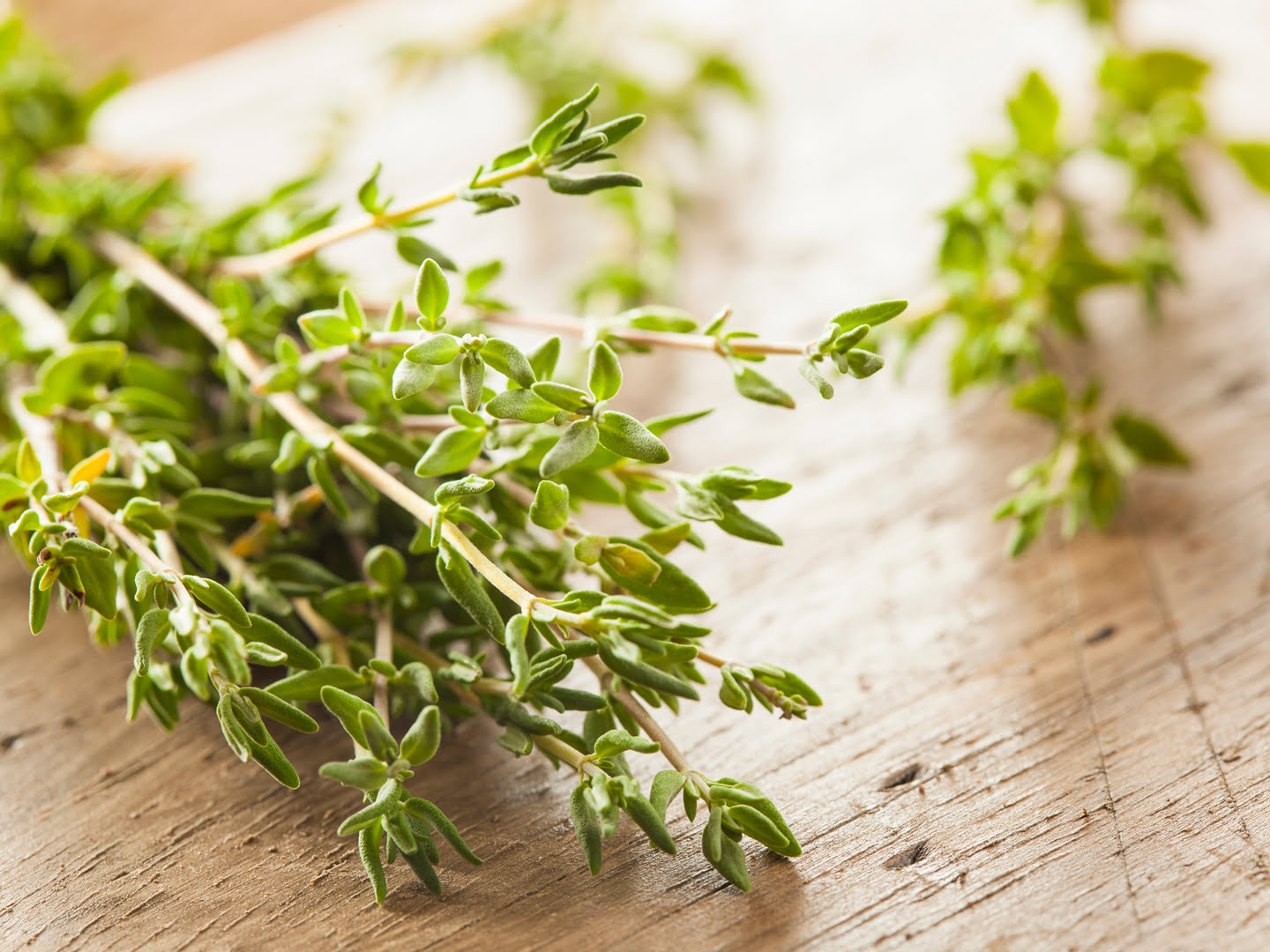
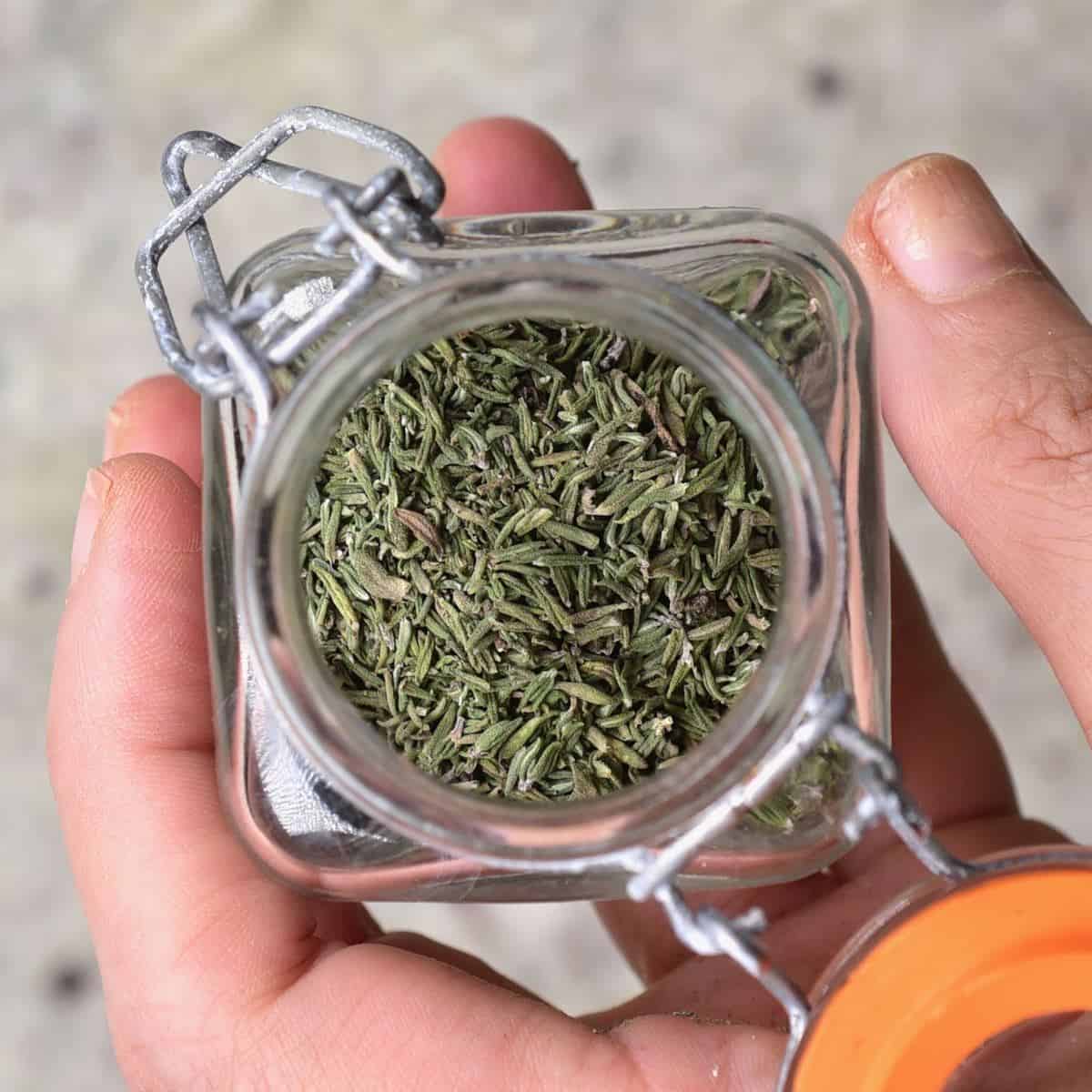
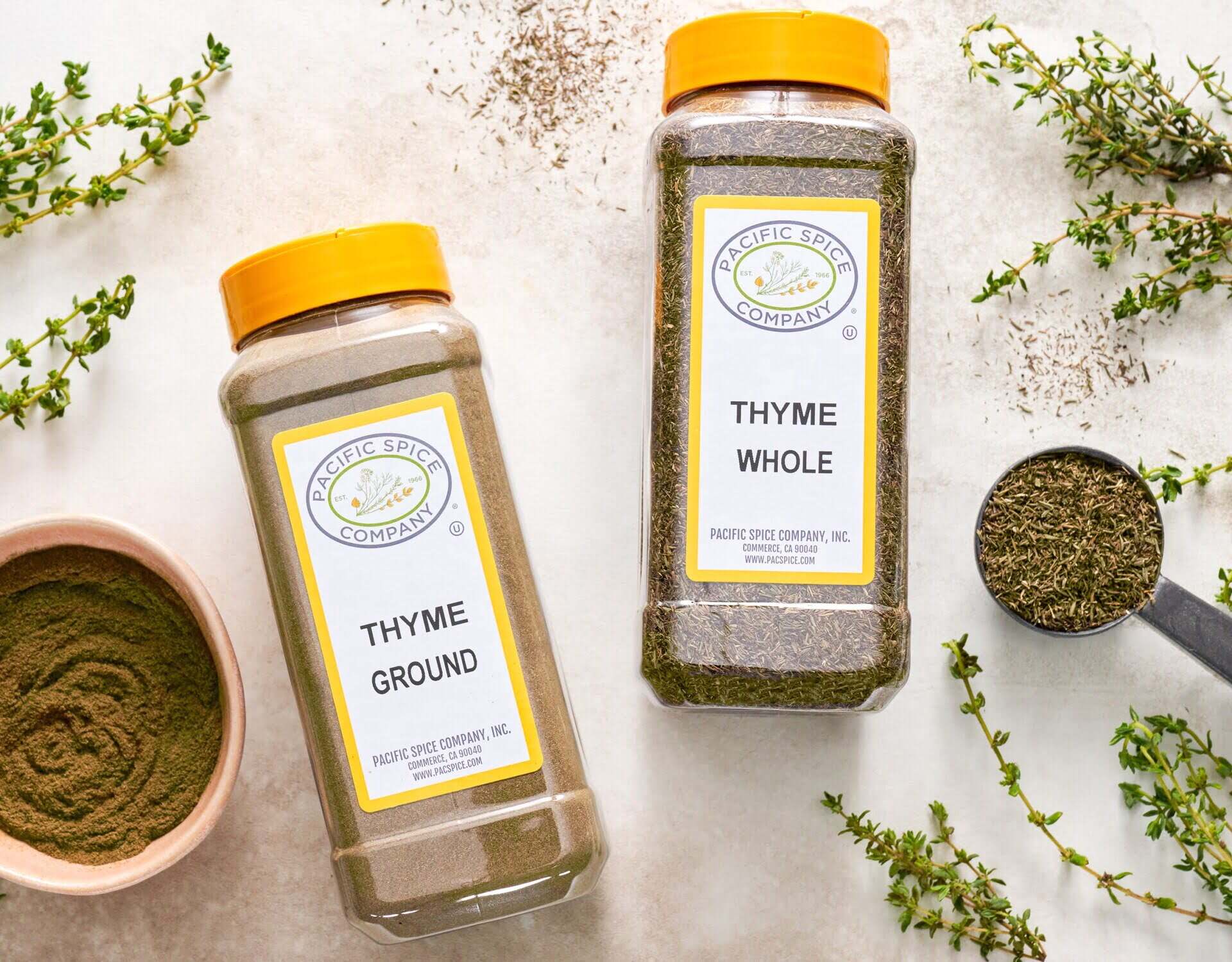
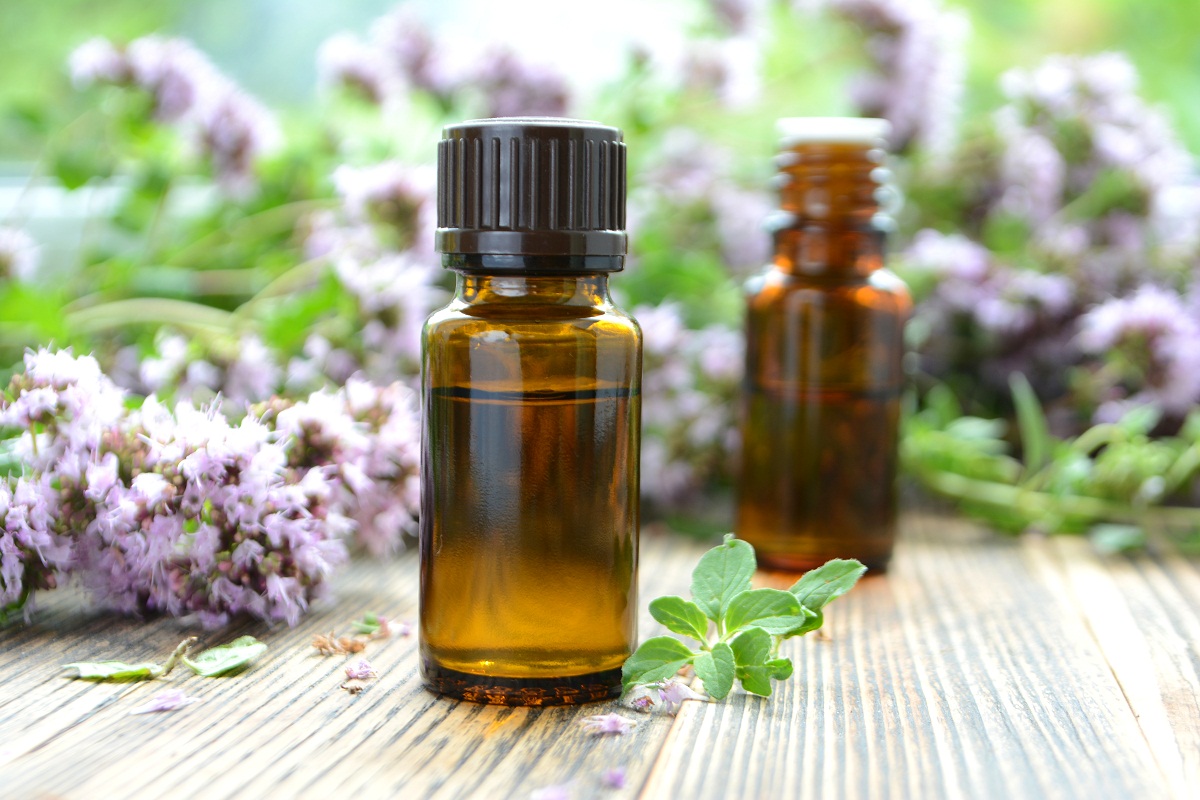

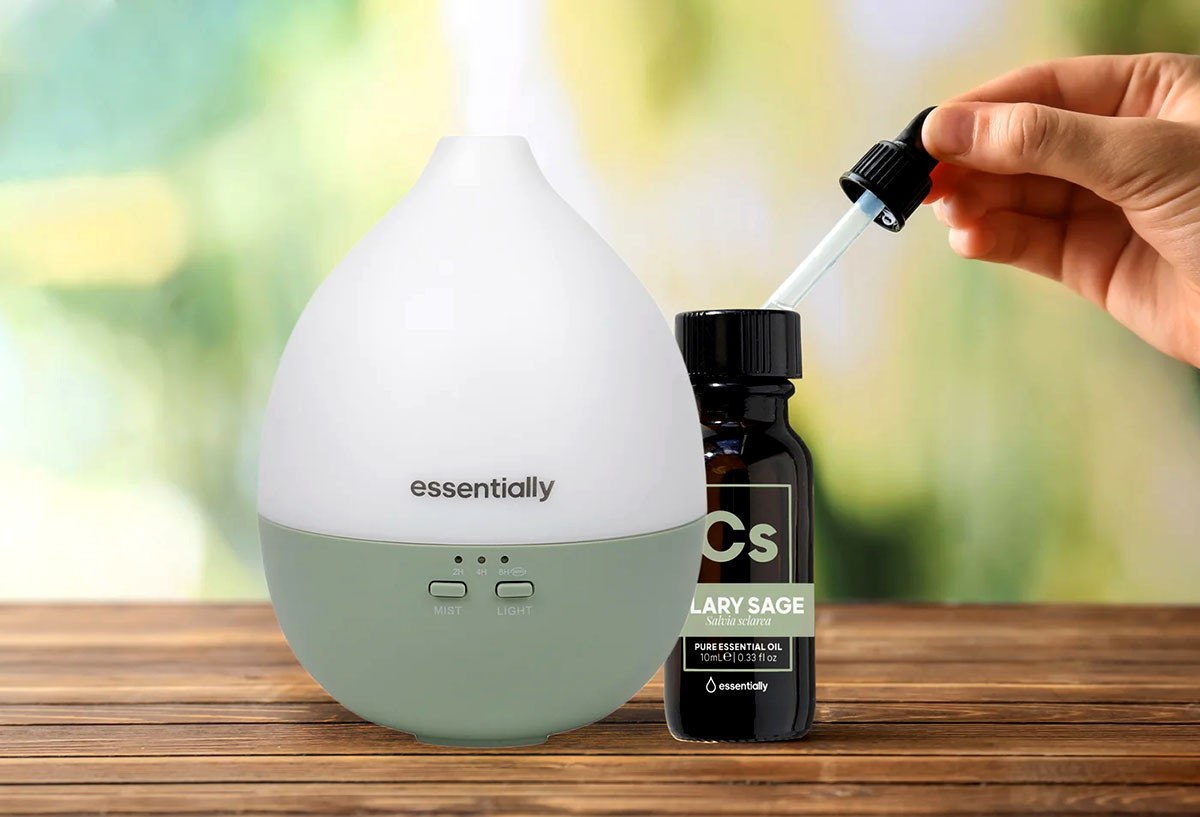

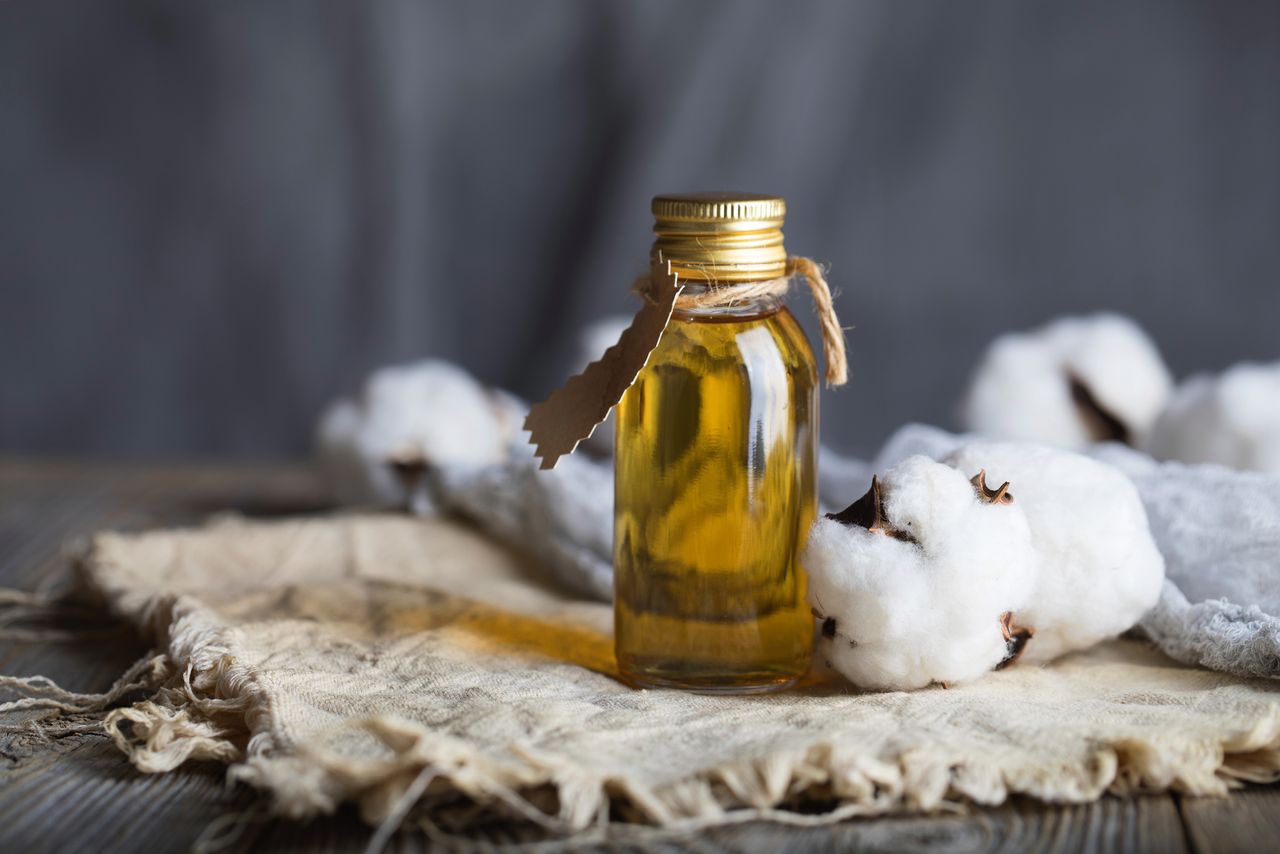


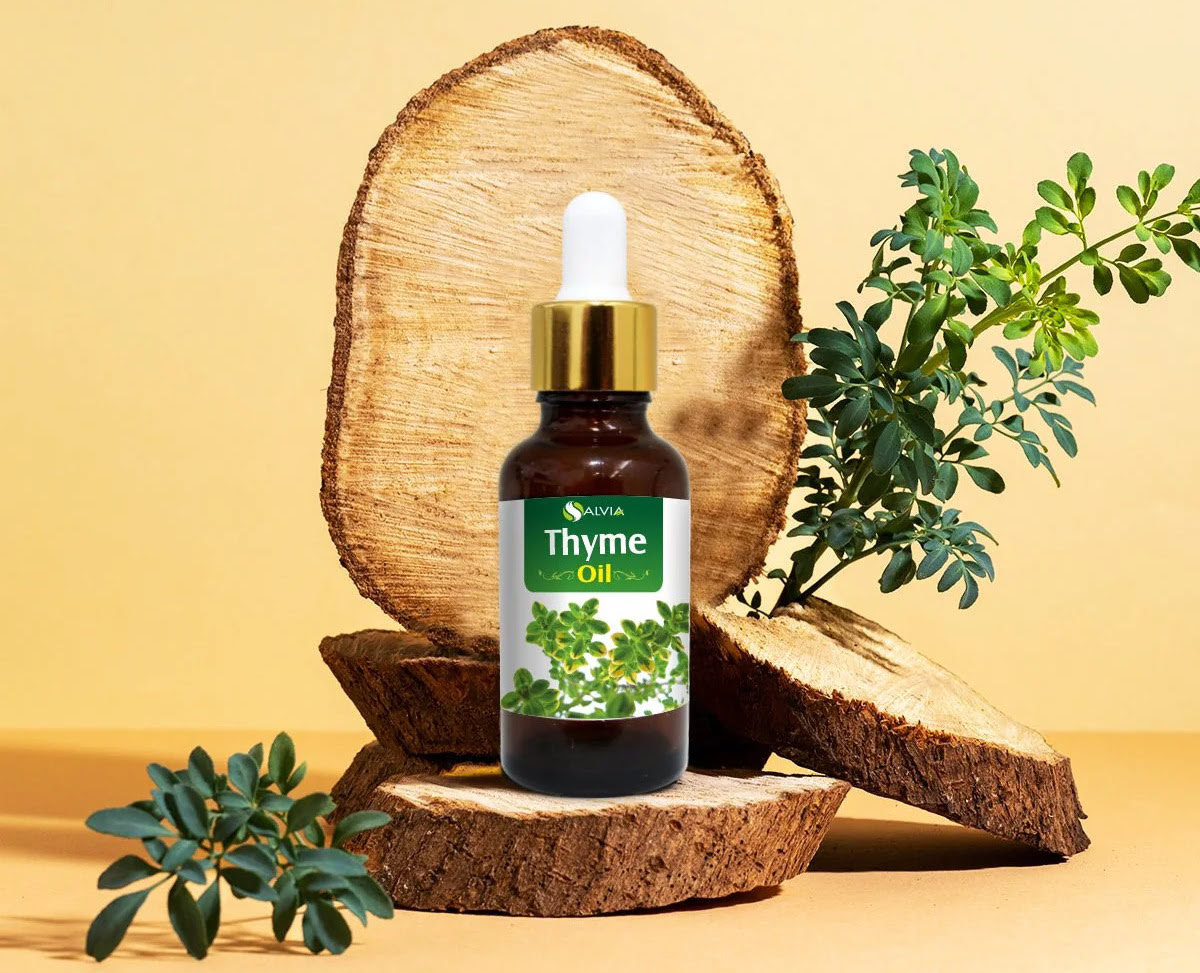
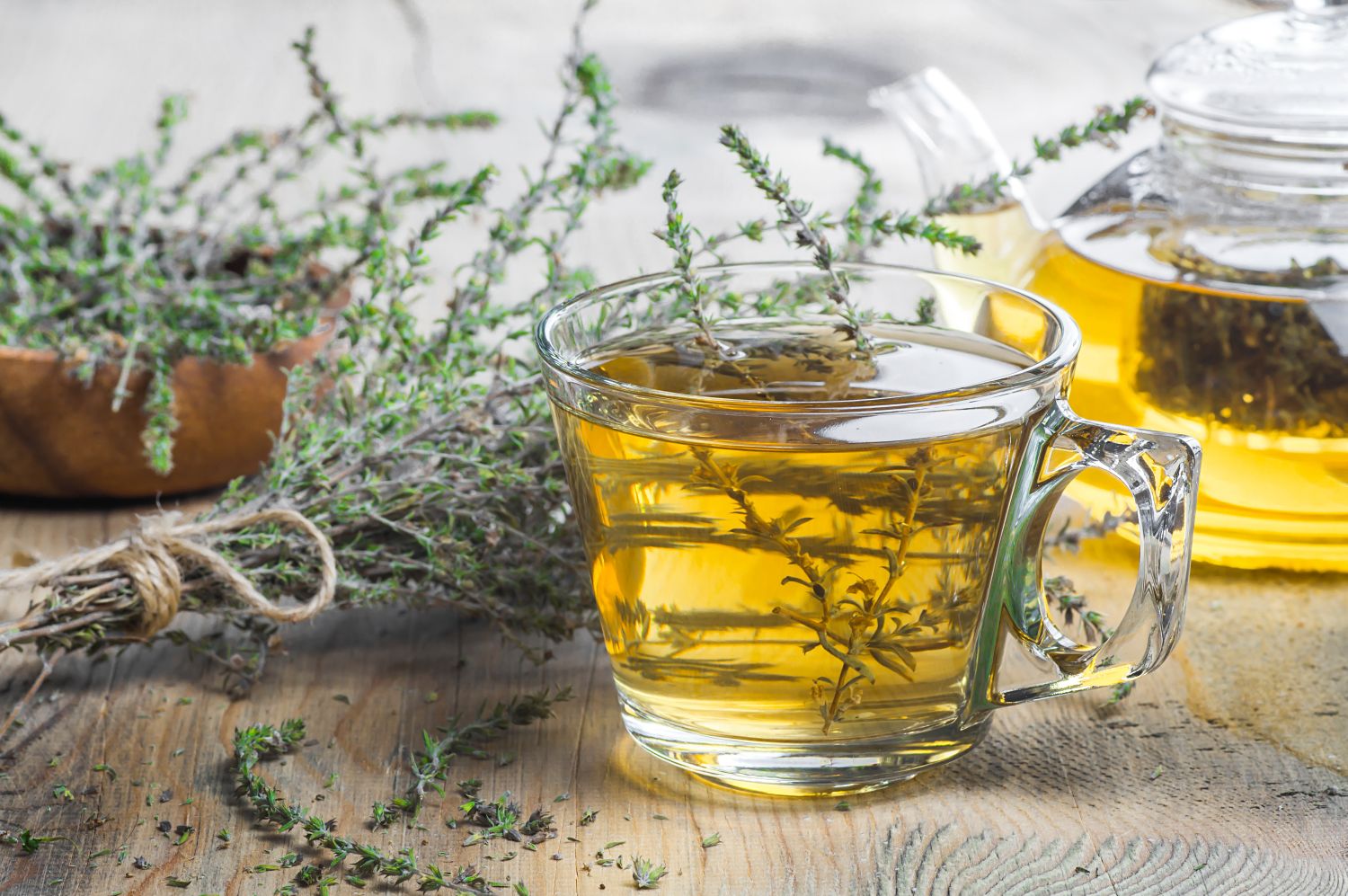

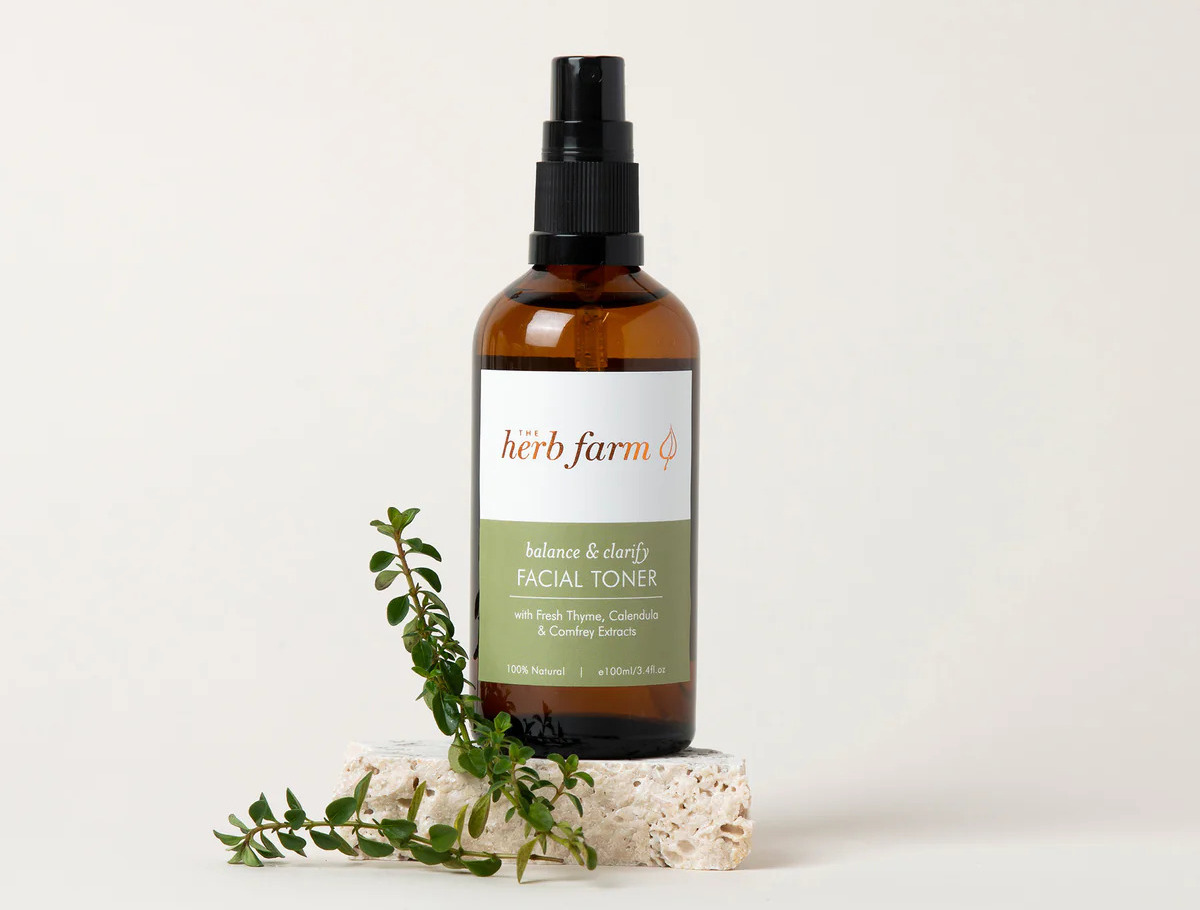

0 thoughts on “What Is Thyme Oil Used For”